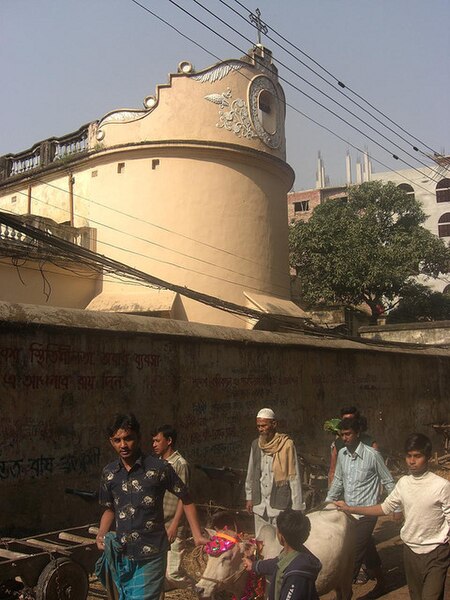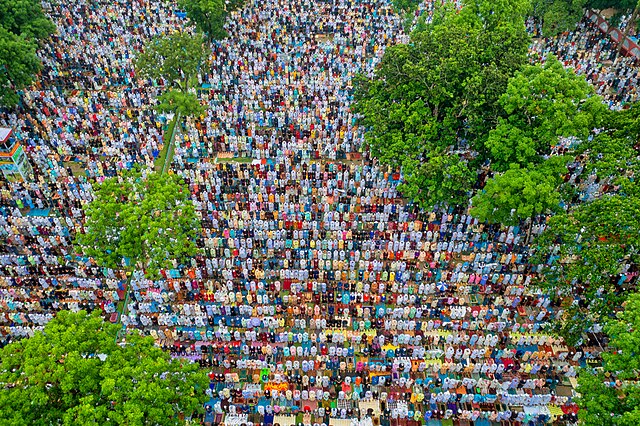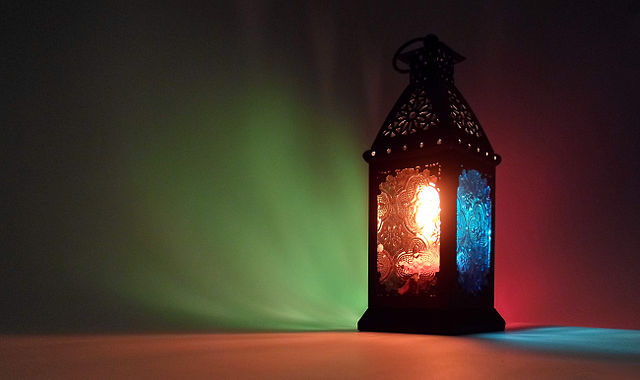Eid al-Adha or the Feast of Sacrifice is the second of the two main holidays celebrated in Islam. In Islamic tradition, it honours the willingness of Abraham to sacrifice his son as an act of obedience to God's command. Depending on the narrative, either Ishmael or Isaac is referred to with the honorific title "Sacrifice of God". However, before Abraham could sacrifice his son in the name of God, and because of his willingness to do so, God provided him with a lamb to sacrifice in his son's place. In commemoration of this intervention, animals such as lambs are sacrificed. The meat of the sacrificed animal is divided into three portions: one part of the meat is consumed by the family that offers the animal, one portion is for friends and relatives, while the rest of the meat is distributed to the poor and the needy. Sweets and gifts are given, and extended family members typically visit and are welcomed. The day is also sometimes called the "Greater Eid".

Eid prayer at the Badshahi Mosque, Pakistan
Eid cattle traditionally gets decorated in Bangladeshi culture
Cookies of Eid (ma'amoul)
There are two official holidays in Islam that are celebrated by Muslims worldwide: Eid al-Fitr and Eid al-Adha. The timing of both holidays are set by the lunar Islamic calendar, which is based upon the cycle of the moon, and so is different from the more common, European, solar-based Gregorian calendar. Every year, the Gregorian dates of the Islamic holidays change.
Eid celebration in Sholakia. The largest Eid congregation
The Fanoos, a lantern used in homes, mosques and streets during Ramadan





